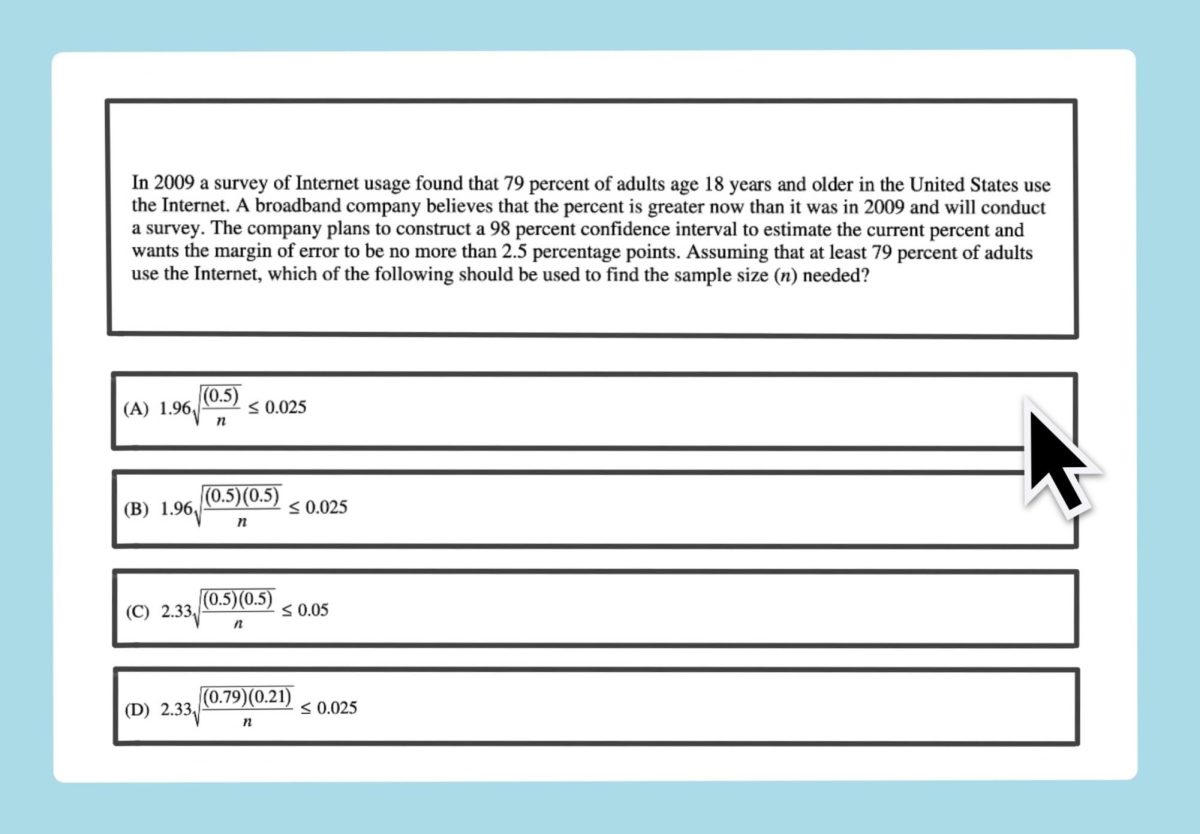Principal Dr. Betsy Bockman stood at the front of the cafeteria on Oct. 17 to discuss the grading expectations of Atlanta Public Schools (APS). She emphasized the APS retake policy that is already in place but has not been consistently implemented by all teachers at Grady.
The policy explains that “students who have not yet provided evidence of mastery should have opportunities to receive reteaching and be reassessed.” The policy allows for students to retake any assignment if they score below a 70 on that assignment.
“It’s a change in teacher practice,” Dr. Bockman said. “Teachers are going to have to get used to that there’s no end date for an assignment other than the end of the semester, which is different. [I’m] just trying to make sure they’re familiar with it, so that all students have a chance to reach mastery.”
The original administrative regulations were adopted on Aug. 11, 1986 and were last revised on July 12, 2016. The policy outlines specific grading practices that teachers and administrators are expected to follow.
“We just have students on all different levels,” Dr. Bockman said. “It doesn’t mean they’re not intelligent. It’s just people get it at different times.”
The policy also instructs teachers to refrain from putting a zero in for incomplete or missing assignments, and instead put an “M” next to the assignment to show that it is missing. Dr. Bockman hopes this will make it make it clearer for the students and parents.
“[An ‘M’] is more information than just a zero, or just what I call a ‘hole’ in the gradebook, which is when a teacher just doesn’t put in anything,” Dr. Bockman said. “If you put an ‘M’ in, it gives the students information. An ‘M’ still calculates to a zero, but it sends a message that it can still be turned in.”
Senior Theodore Sifnaios said he retakes around three assignments every semester. He said he worries about the integrity of the policy if a failing student can score higher than one that originally passed.
“It’s fair if everyone can retake and have the potential to make the same grade,” Sifnaios said. “It becomes unfair if those who failed originally can make a higher grade than the students that passed the first time.”
APS originally addressed this problem in 2008, when a Professional Learning Community (PLC) was created to investigate APS’s current grading practices and ways to improve them. Rebecca Kaye, the director of policy for APS and facilitator of the PLC, gathered principals, teachers, curriculum coordinators, special education teachers, gifted teachers, teachers in learning technology and the Assistant Superintendent for Teaching and Learning. She said the concern stemmed from abnormalities in the gradebook.
“[We noticed] there were more than twice as many 70s as any other grade and it was not a normal distribution. Most likely there is something happening there that we need to pay attention to,” Kaye said.
Kaye said the PLC conducted a survey of instructional staff to see how they felt philosophically about grading. The PLC found the top three suggestions were that grades should assess the level of mastery students have achieved in a class, they should provide feedback to students to help them improve their performance, and they should communicate students’ progress and achievement to their parents.
The survey also found that 92.8 percent of the staff were in consensus that grades should be both formative and summative, and that 76.8 percent of those surveyed agreed that students should be graded based on common standards rather than relative to their peers.
“I don’t really know if there was consensus, but the center was that the closer kids and teachers are together, the more consistent grades should be among them,” Kaye said. “There was more agreement that if [two students] are in the same classroom, that their grades should be based on the same factors or should be comparable.”
The PLC developed a vision that grades should “provide timely feedback to teachers, students and parents on mastery of standards,” “report what students know and don’t know,” and “empower students to own their learning.” Kaye hopes the new policy reflects those ideas.
“[The policy] really speaks to the purpose of grades is to communicate information about standards mastery to students, parents, teachers,” Kaye said. “Teachers haven’t been creative about thinking about consequences for behavior and have relied on grades as being a consequence.”
APS now has to worry about the implementation of this new policy. Dr. Bockman has begun to stress this policy to teachers at Grady in hopes of creating a more uniform grading system.
“A good policy both reflects change and drives change, and this one is exactly that,” Kaye said. “It reflected a change in the way that we felt and the way that Instructional staff felt at the time, but it also is driving a change because it crystallized and made it very clear the direction we should be going in.”
Dr. Bockman understands that some may disagree with the grading change, but she said she is strictly following APS policy. Staffers objecting to the policy can bring their concerns to the district.
“We work for the system, and the democratic process would be people need to ask for it to be reviewed,” Dr. Bockman said. “If people really disagree with it, they should exercise their right to express their opinion. You have to think about what’s best for kids and not personalize it.”
Principal Dr. Betsy Bockman stood at the front of the cafeteria on Oct. 17 to discuss the grading expectations of Atlanta Public Schools (APS). She emphasized the APS retake policy that is already in place but has not been consistently implemented by all teachers at Grady.
The policy explains that “students who have not yet provided evidence of mastery should have opportunities to receive reteaching and be reassessed.” The policy allows for students to retake any assignment if they score below a 70 on that assignment.
“It’s a change in teacher practice,” Dr. Bockman said. “Teachers are going to have to get used to that there’s no end date for an assignment other than the end of the semester, which is different. [I’m] just trying to make sure they’re familiar with it, so that all students have a chance to reach mastery.”
The original administrative regulations were adopted on Aug. 11, 1986 and were last revised on July 12, 2016. The policy outlines specific grading practices that teachers and administrators are expected to follow.
“We just have students on all different levels,” Dr. Bockman said. “It doesn’t mean they’re not intelligent. It’s just people get it at different times.”
The policy also instructs teachers to refrain from putting a zero in for incomplete or missing assignments, and instead put an “M” next to the assignment to show that it is missing. Dr. Bockman hopes this will make it make it clearer for the students and parents.
“[An ‘M’] is more information than just a zero, or just what I call a ‘hole’ in the gradebook, which is when a teacher just doesn’t put in anything,” Dr. Bockman said. “If you put an ‘M’ in, it gives the students information. An ‘M’ still calculates to a zero, but it sends a message that it can still be turned in.”
Senior Theodore Sifnaios said he retakes around three assignments every semester. He said he worries about the integrity of the policy if a failing student can score higher than one that originally passed.
“It’s fair if everyone can retake and have the potential to make the same grade,” Sifnaios said. “It becomes unfair if those who failed originally can make a higher grade than the students that passed the first time.”
APS originally addressed this problem in 2008, when a Professional Learning Community (PLC) was created to investigate APS’s current grading practices and ways to improve them. Rebecca Kaye, the director of policy for APS and facilitator of the PLC, gathered principals, teachers, curriculum coordinators, special education teachers, gifted teachers, teachers in learning technology and the Assistant Superintendent for Teaching and Learning. She said the concern stemmed from abnormalities in the gradebook.
“[We noticed] there were more than twice as many 70s as any other grade and it was not a normal distribution. Most likely there is something happening there that we need to pay attention to,” Kaye said.
Kaye said the PLC conducted a survey of instructional staff to see how they felt philosophically about grading. The PLC found the top three suggestions were that grades should assess the level of mastery students have achieved in a class, they should provide feedback to students to help them improve their performance, and they should communicate students’ progress and achievement to their parents.
The survey also found that 92.8 percent of the staff were in consensus that grades should be both formative and summative, and that 76.8 percent of those surveyed agreed that students should be graded based on common standards rather than relative to their peers.
“I don’t really know if there was consensus, but the center was that the closer kids and teachers are together, the more consistent grades should be among them,” Kaye said. “There was more agreement that if [two students] are in the same classroom, that their grades should be based on the same factors or should be comparable.”
The PLC developed a vision that grades should “provide timely feedback to teachers, students and parents on mastery of standards,” “report what students know and don’t know,” and “empower students to own their learning.” Kaye hopes the new policy reflects those ideas.
“[The policy] really speaks to the purpose of grades is to communicate information about standards mastery to students, parents, teachers,” Kaye said. “Teachers haven’t been creative about thinking about consequences for behavior and have relied on grades as being a consequence.”
APS now has to worry about the implementation of this new policy. Dr. Bockman has begun to stress this policy to teachers at Grady in hopes of creating a more uniform grading system.
“A good policy both reflects change and drives change, and this one is exactly that,” Kaye said. “It reflected a change in the way that we felt and the way that Instructional staff felt at the time, but it also is driving a change because it crystallized and made it very clear the direction we should be going in.”
Dr. Bockman understands that some may disagree with the grading change, but she said she is strictly following APS policy. Staffers objecting to the policy can bring their concerns to the district.
“We work for the system, and the democratic process would be people need to ask for it to be reviewed,” Dr. Bockman said. “If people really disagree with it, they should exercise their right to express their opinion. You have to think about what’s best for kids and not personalize it.”







